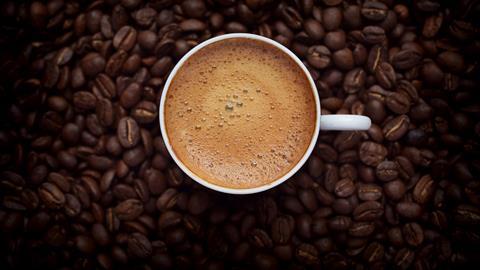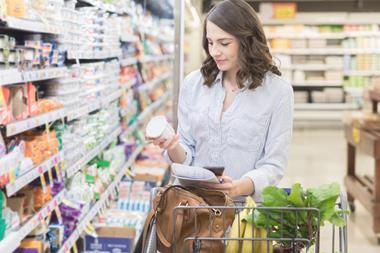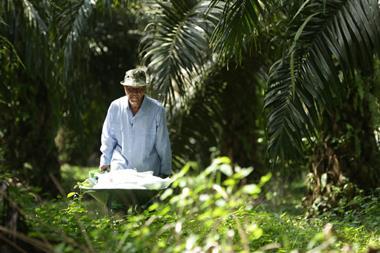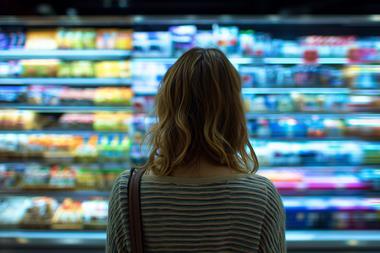With around 98m cups of coffee consumed in the UK every day, the pressure is on for the category to improve its sustainability credentials – and one clear way forward is through packaging refill and reuse.
Sustainability has become a major calling card in the UK’s food and drink market in the past few years.
As a 2023 report by Mintel identified, nearly four in five shoppers intentionally choose products with a sustainability claim – for at least some products. However, prioritising sustainability has become much more of a challenge during the cost-of-living crisis, with almost two-thirds of shoppers saying the issues posed by this will make sustainability less important to them.
That said, shoppers still want brands to be more sustainable, with 76% of consumers calling on supplier companies to take the initiative in reducing their environmental impact [Nielsen]. In addition, as Mintel highlights in its report, the UK government’s upcoming (though currently delayed) Extended Producer Responsibility Scheme adds another layer of pressure, as it aims to ensure producers pay the full net cost of managing – among other types of packaging – food and drink packaging at end of life, thus incentivising them to ensure that products placed on the market are recyclable and to minimise unnecessary packaging material.
So, the challenge is on for fmcg brands to step up to the mark and take proactive measures and transform their environmental footprint with a view to helping towards a greener, more sustainable planet.
One clear trend from consumers is towards refill and reuse behaviour, which is set to grow annually by 4.9% to 2027, according to research. However, there remains a great deal of confusion in the market, with widely varied messaging regarding recyclability on-pack and many packaging items only able to be recycled in-store.
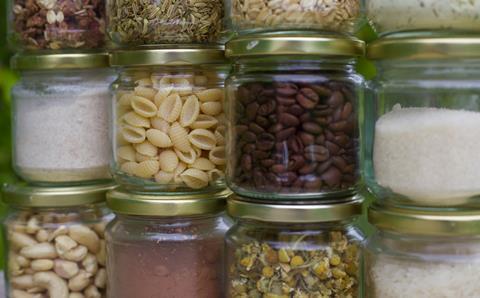
So what about coffee?
One category under sustainability scrutiny in recent times is coffee, both in terms of its sourcing policies and the packaging used. In the UK, approximately 98m cups of coffee are consumed per day and 80% of UK households buy instant coffee for in-home consumption, according to the British Coffee Association.
Now, the coffee packaging industry is witnessing a shift towards sustainability, focusing on eco-friendly materials and recycling initiatives.
For the coffee category, two major factors govern consumers’ sustainable choices: responsible sourcing and recyclable packaging [JDE], confirms Oliver Ellis, sustainability lead UK&I at Jacobs Douwe Egberts (JDE Peet’s). “Refill behaviour is already established within coffee (vs other categories) and the refill pack format is growing,” he adds. This was reaffirmed by JDE’s own research, which shows that 90% of consumers are already decanting their coffee refill packs at home.
The company’s Kenco brand was the first coffee brand to launch the refill format back in 2009, notes Roberto De Felice, JDE marketing director, UK&I. “Today Kenco is the market leader with a 79% market share [Nielsen] of instant coffee refills, delivering over £25m RSV each year,” he reveals.
However, the challenge in the coffee market has been that refill packs are generally made of soft plastics – to retain the flavour and quality of the coffee – which cannot be recycled in consumers’ domestic recycling bins.
Recognising this challenge and with a goal to make 100% of its packaging reusable, recyclable or compostable by 2030, JDE Peet’s R&D department undertook a complicated process to identify a material that would be suitable for the refill packs and achieve three key objectives: that they could be recycled at home; that they were robust and strong; and that they would ensure the coffee remained fresh to give an adequate shelf life.
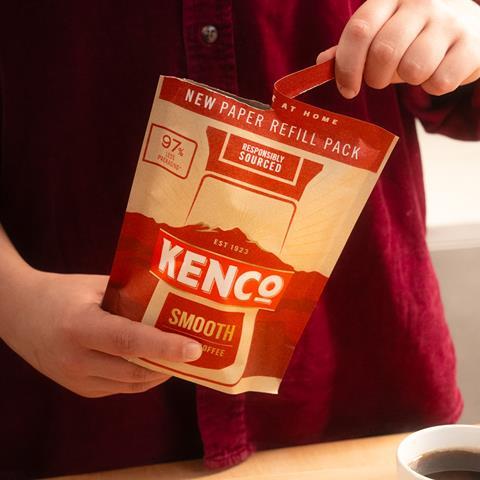
The result was a new packaging format, never before used in the retail space, but developed by the company within a year. Initially introduced to retailers in the UK & Ireland on its Kenco and Douwe Egberts instant coffee brands in January this year, the company’s new refills offer 97% less packaging than a standard 200g glass jar [Nielsen]. They have been developed to keep the coffee fresh for 15 months to preserve the high-quality taste experience of the brands.
“This cutting-edge packaging technology marked a breakthrough for sustainable packaging in the instant coffee sector,” says De Felice, noting that the refill packs can now be recycled at home. “The new packs will help empower consumers to make greener choices by making it easier to recycle and driving wider adoption of refills,” he says.
The company is also rolling out the new paper pack format to its Douwe Egberts and L’Or brands, which will then have refill formats for the first time, providing a premium offering within instant coffees.
“The paper packaging meets the growing demand for refill, now in a home recyclable format,” says De Felice. “With Kenco the leader in refills, the plastic reduction also contributes to retailers’ own sustainability strategies and supports JDE Peet’s own Common Grounds Programme*, which aims to minimise footprint and positively impact people, the planet and the future of coffee and tea.”
Common Grounds
JDE Peet’s Common Ground Programme brings together all of the company’s ongoing sustainability work under one programme and is comprised of three pillars: responsible sourcing, minimising footprint and connecting people. Through the programme, the company champions regenerative agriculture to enhance producer livelihoods and positively impact the planet. It also seeks to enhance innovation and collaboration on sustainable issues throughout the supply chain, thereby minimising its footprint. And it strives to engage colleagues and communities through the joy of coffee and tea, to support wellbeing and promote equal opportunity.
To find out more about JDE Peet’s sustainability initiatives, go to https://www.jdepeets.com/sustainability/








